
Transcription
BTB #3
Q#8. What is our civilisation inclined to do?
A. p 19 "Our civilisation is more inclined to criticise, judge and condemn", what they don't understand - much the same as profane cultures throughout recorded time, which subjugate and civilise (1. to cause to develop out of a primitive state...? EDUCATE/SOCIALISE).
Q. What is the result of acts of criticsm and judgement?
A. p18-19 "Modern science, industry, transportation, commerce, law - all these would never have developed withouit the universal exercise of our critical faculty and standards of judgement. But the price of this gain in outer culture has been a corresponding loss in higher knowledge and spiritual life. Therefore we must never forget that higher knowledge has to do with revealing truth and insight and not with revearing people."
Q Does higher knowledge have to do with reverence toward individual people, on truth and insight?
A. p18 "Just as surely as every feeling of devotion and reverence nurtures the soul's powers for higher knowledge, so every act of criticsm and judgement drices these powers away." p9 "For people seeking spiritual schooling under the current spiritual conditions a totally direct relationship to the objective spiritual world is more important than a relationship with the personality of a teacher. Indeed, in spiritual training, the spiritual teacher today increasingly takes on a merely helping role." "Neither the authority of the teacher nor the student's trust in the teacher should be any more important in spiritual schooling than in any other area of knowledge.
Q#9 How can we inwardly create feelings of awe and wonder?
A p19 "We must seek - in all things around us, in all our experiences - for what can arouse our admiration and respect." "Anyone seeking higher knowledge must create these feelings inwardly, instilling them in the soul. This cannot be done by studying. It can only be done by living."
Q Where do we look for those things which awaken our admiration and respect?
A p19-20 "We must see - in all things around us, in all our experiences." "Always loking for the good in everything and withholding critical judgemnent."
Q#10 What happens when we criticise other people's weaknesses?
A p19 "We rob ourselves of higher cognitive power."
p18 "Every act of criticsm and judgement drives these powers away."
Q What happens when we enter into another person's good qualities?
A p19 "We gather in that force" "We gain strength by always looking for the good (p20)
Q Is showing outer respect enough?
A p20 "We must carry this respect into our thoughts. We must guard against disrespectful, disparaging and criticising thoughts. We must try to practise reverence in our thinking at all times. We begin our inner scho0oling by bringing devotion into our thought life.
Q. What happens when we become aware of judgement and critical opinions that we carry?
A. p20 "Each moment that we spend becoming aware of whatever derogatory, judgemental, and critical opinions still remain in our consciousness brings us closer to higher knowledge. We advance even more quickly if, in such moments, we fill our consciousness with admiration, respect, and reverence for the world and life."
Q. What feelings and attitudes encourage opening of our spiritual eyes?
A. p20 "Filling out consciousness with admiration, respect, and reverence. Filling our consciousness in this way opens our spiritual eyes. "We begin to see things around us that we could not see before. We begin to realize that previously we saw only a part of the world. We being to see our fellow human beings in a different way than we did before.
Q #11. As esoteric pupils beginning on the path, are sun changes visible to the outer world?
A. p21. "Changes occur only in the inner part of the soul."
Q#12. Food nourishes our body. What nourishes our soul? What harms our soul?
A. p21-22 "What food is to the body, feelings are to the soul - we nourish it with reverence, respect, and devotion. These make the soul healthy and strong, particularly for the activity of knowing. Disrespect, antipathy, and disparaging admirable things, on the other hand, paralyze and slay our cognitive activities."
Q #13. What do we need in order to develop a meaningful relationship with the outer world?
A. p23 "To develop a meaningful relationship to the outer world we must learn to work with our own feelings and ideas."
p22."Our cognitive capacity increases with feelings of devotion and reverence. Reverence awakens a power of sympathy in the soul. This draws toward us qualities in the beings around us that would otherwise remain hidden. What we attain through devotion becomes even more effective when another kind of feeling is added. This consists in our learning to surrender ourselves less and less to the impressions of the outerworld and develop instead an active inner life. Inner experience is the only key to the beauties of the outer world."
Q. What is the purpose of learning?
A. p24 "The purpose is not to accumulate learning as our own private store of knowledge, but to place what we have learned in the service of the world."
p 17-18 "To attain true knowledge, you must learn to respect this knowledge. Every feeling of devotion to truth and knowledge - unfolded in the soul - produces an inner strength or force that sooner or later leads to knowledge."
p 19. "If we wish to become esoteric students, we must train ourselves vigorously in the mood of devotion. We must seek - in all things around us, in all our experiences - for what can arouse our admiration and respect."
Q #14 What insights bring you forward on your path?
A p 25 Every insight that makes you more mature on the path of the endorsement of humanity and world evolution, brings you one step forward.
-Suppressive reasonableness blinds us to the fact that as long as we are imperfect human beings, we are also imperfect servants of humanity and the world. The more perfect we are, the better we can serve the whole. "Be ye perfect" -Matt. 548
p. 201 "We perfect ourselves as we pass through ever purer moral convictions."
p 62. "Thus if we seek to penetrate the mysteries of human nature through our own efforts, we must abide by the golden rule of the occult sciences. This rule states: For every single step that you take in seeking knowledge of hidden truths, you must take three steps in perfecting your character toward the good."
For the Love of Truth.
Other posts by this author
|
2023 may 31

|
2023 apr 5
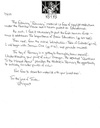
|
2023 mar 19
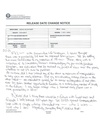
|
2023 mar 5

|
2023 mar 5
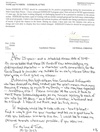
|
2023 mar 5

|
More... |
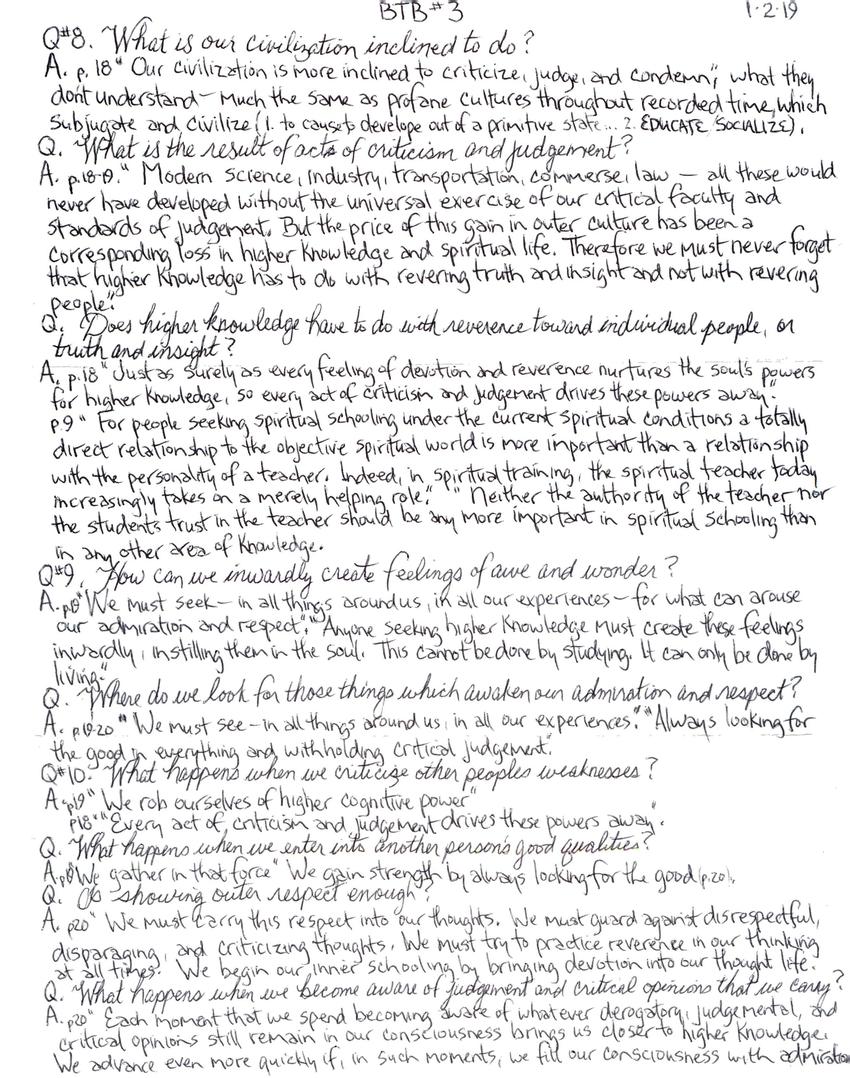
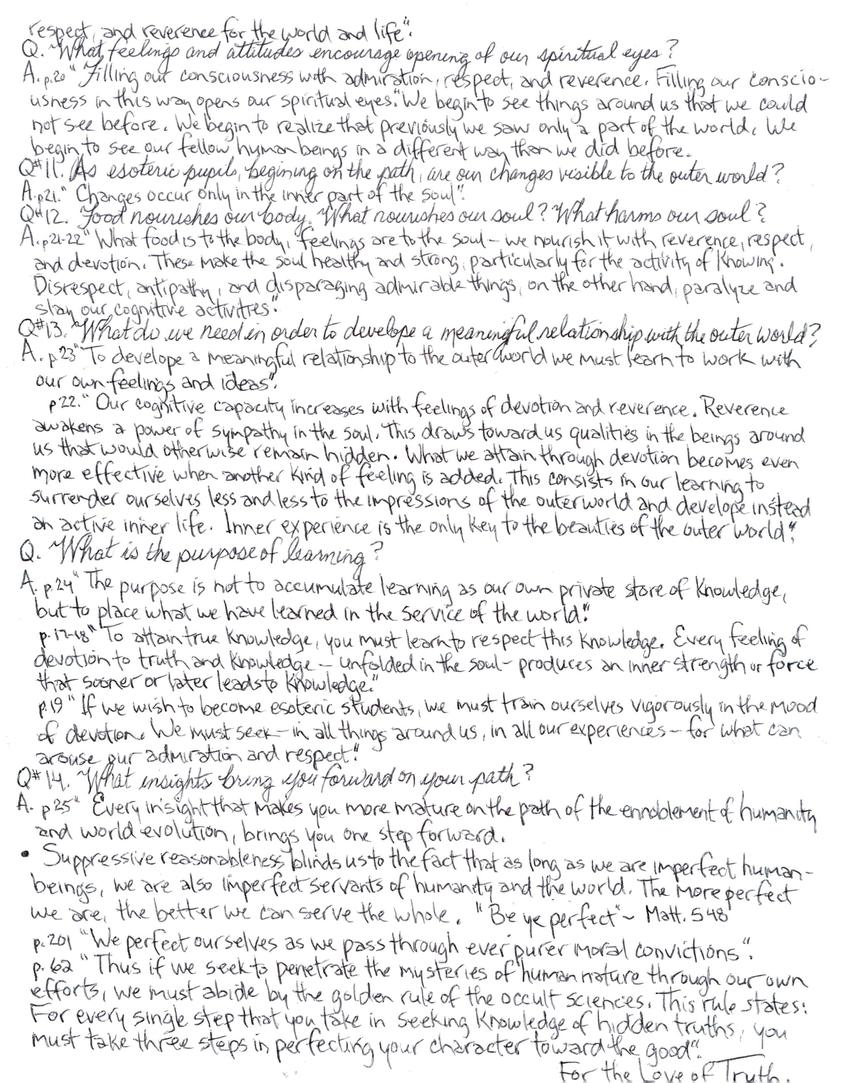

Replies